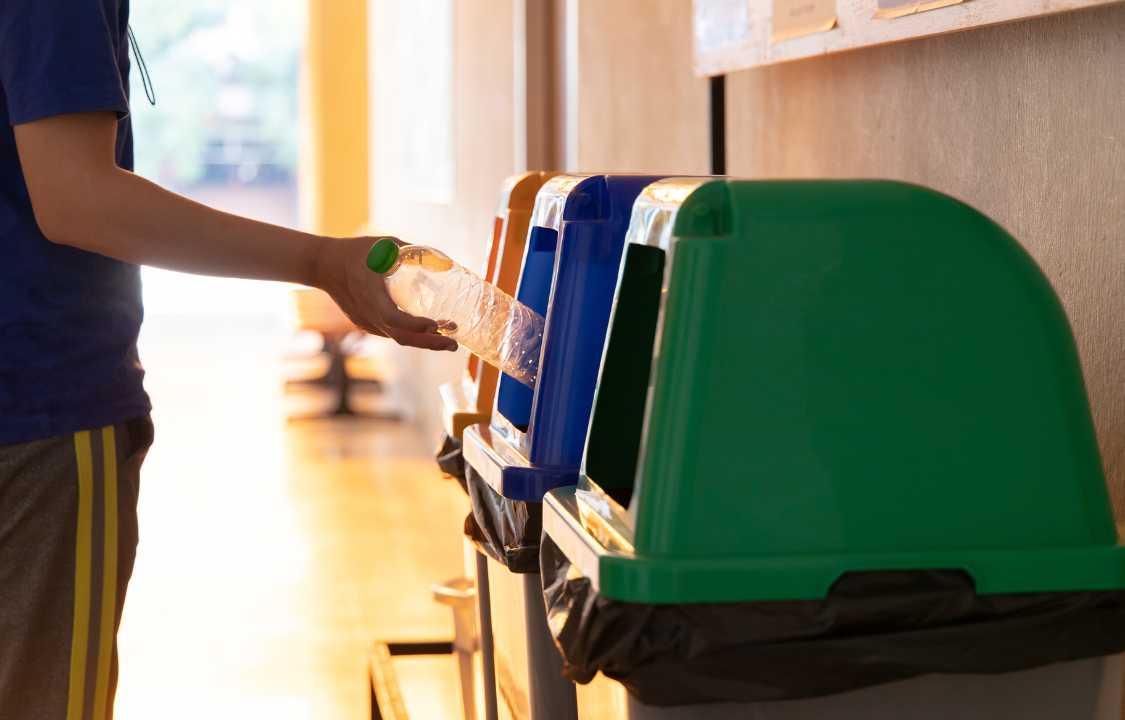Health Benefits, Health Care
Why Reducing Waste is Good for Your Health
The zero-waste movement, aimed at reducing waste and promoting sustainable living, has been gaining momentum worldwide, with individuals and communities embracing eco-friendly practices to protect the environment. While the environmental advantages of this movement are widely acknowledged, its significant health benefits often go unnoticed. In this comprehensive exploration, we will uncover four compelling ways in which embracing a zero-waste lifestyle can significantly enhance your overall well-being.
1. Reduced Chemical Exposure
Achieving a clean and hygienic living space is a fundamental desire for many. Unfortunately, numerous commercial cleaning products harbor harmful chemicals that can have adverse effects on both your health and the environment. In light of the COVID-19 pandemic, cleaning activities surged, leading to a 74.2% increase in cleaning solution usage, but also a 46.9% rise in reports of adverse effects such as skin irritation, nausea, dizziness, and breathing problems.
The National Poison Data System recorded a staggering 28,158 phone calls for cleaner exposure and 17,392 for disinfectants in the first quarter of 2020. Creating your cleaning products using everyday household ingredients is a safer and equally effective way to disinfect your home. DIY cleaners, such as those containing baking soda and vinegar, are highly efficient for maintaining a clean living environment. You can even concoct solutions using vinegar and lemon wedges to clean your garbage disposal in the kitchen. By adopting these practices, you not only protect your health but also contribute to a safer planet.
2. Fewer Forever Chemicals
Per- and polyfluoroalkyl substances (PFAS) have become a growing concern, especially concerning their presence in drinking water. However, it’s not just water that poses a risk; plastic products like food containers can be equally hazardous to your health. Recent research has revealed PFAS concentrations ranging from 2.66 to 7.19 nanograms per gram in plastic food containers. More alarmingly, heating these containers can result in concentrations that are 830% higher. This suggests that individuals consuming food stored in plastic containers may experience significant PFAS exposure.
The U.S. Environmental Protection Agency has issued warnings that PFAS may disrupt fertility in women, increase the risk of prostate and kidney cancers, and compromise immunity. Stainless steel and glass stand out as excellent alternatives to plastic food containers. Glass, in particular, is a non-reactive material that won’t leach harmful chemicals into your food.
3. Less Packaging and Preservatives
The food industry has a profound impact on air quality and human health. Nearly 50% of plastic food packaging is derived from fossil fuels, contributing to global warming and leaving a long-lasting ecological footprint. Prepackaged foods contain various additives and preservatives that can harm both the environment and human health. Many of these additives are toxic to humans.
For instance, sodium nitrates are used in processed meat to inhibit bacterial growth and preserve flavor. However, when exposed to heat and stomach acid, sodium nitrates can generate nitrosamines, which are linked to pancreatic and colorectal cancers. Sulfites, often listed as sulfur dioxide, sodium sulfite, or potassium bisulfite, are commonly used preservatives and are known to exacerbate asthma.
To reduce packaging waste and safeguard your health, consider bringing reusable produce bags to the grocery store, opting for locally-grown foods at farmers’ markets, and cultivating your produce at home. Home-grown fruits and vegetables offer a healthy alternative and allow you to control your exposure to pesticides, fertilizers, and preservatives.
4. Improved Air and Water Quality
Electronic waste, commonly referred to as e-waste, encompasses discarded products that have reached the end of their useful life. This category of waste includes smartphones, laptops, and other electronics. Alarmingly, the world generates a staggering 50 million metric tons of e-waste each year. Many of these discarded electronic products contain hazardous materials like chromium, lead, and flame retardants, all of which pose significant dangers to human health.
Chronic lead exposure, for instance, can result in kidney disease and cognitive decline, particularly in aging adults. Pregnant women who are exposed to lead risk developmental issues in their unborn children. Furthermore, e-waste contributes to air and water pollution through incineration and leaching, underscoring the importance of responsible electronic waste disposal.
Ideally, avoiding frequent upgrades of electronic devices is a simple yet effective way to reduce e-waste. Companies often encourage consumers to purchase the latest models frequently. For instance, the average replacement time for smartphones is approximately 2.35 years. However, if your current electronic devices are functioning well, there is no need for premature replacement.
Conclusion
It is often underestimated how our daily habits and choices impact our health and the world around us. We go about our routines, using electronic devices, and consuming from plastic containers, often without fully comprehending their material effects on the air we breathe and the food we consume. However, adopting a zero-waste lifestyle can bring about remarkable health benefits for individuals while also contributing to a sustainable and healthier future for our planet.
Every phone call you make, every DIY cleaning solution you create, and every choice to use a glass container over plastic represents a small but significant step toward better health and a greener Earth. These conscious decisions have the power to mitigate the potential harms we unknowingly expose ourselves to in our daily lives, as well as reduce the environmental footprint associated with excessive waste and pollution.
In today’s world, with increasing awareness of health and environmental concerns, the zero-waste movement offers a holistic approach that seamlessly aligns the well-being of individuals with the health of the planet. The interconnectedness of human health and environmental well-being is undeniable, and by embracing a zero-waste lifestyle, you actively contribute to a healthier and more sustainable world for all. It is a movement that signifies our collective responsibility to nurture the planet that sustains us and ensures a harmonious coexistence for generations to come. Your health is not separate from the environment; it is intrinsically linked, and by making conscious choices, you have the power to make a meaningful impact on both.

